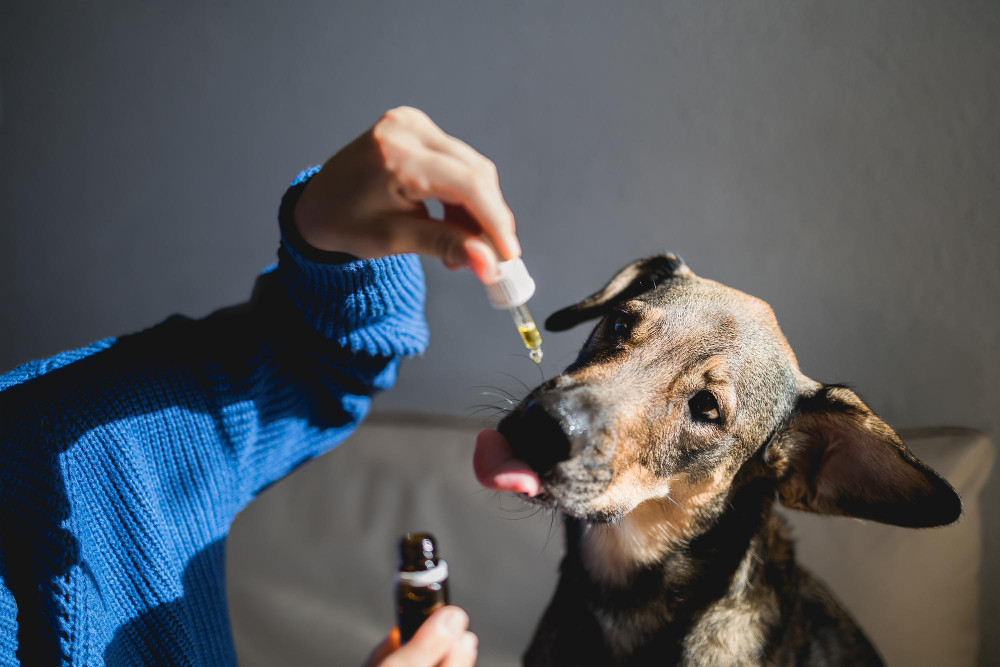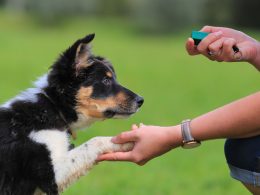You have undoubtedly heard about hemp and all the taboos surrounding its consumption, whether for medicinal or recreational use. But did you know that our dogs can also use it? In this article, I will tell you how this plant can be used to improve the health of our furry ones and everything you need to know about the use of hemp by your pet.
What Is Hemp?
Hemp is the popular name for Cannabis sativa, Cannabis indica, and their hybrids. You may have heard several other words that can be given to these plants, such as Marijuana and pot. Everyone usually refers to this plant for recreational use or even in a derogatory way. However, the term hemp refers to plants of the species Cannabis Sativa, and all parts of that plant, as the seeds, thereof and all derivatives such as extracts, isomers, cannabinoids, acids, salts, and salts of isomers with legal production. That is, with established parameters, within the norms set by legislation, and with no more than 0.3 percent concentration of THC, a substance known for its psychotropic effects.
Is Hemp Production Legal In The US?
Yes, The Agriculture Improvement Act of 2018 (2018 Farm Bill) authorized the production of hemp and removed hemp and hemp seeds from the Drug Enforcement Administration’s (DEA) schedule of Controlled Substances. With that, theoretically, hemp production became legal in the USA, and the USDA started to regularize and implement quality and regulatory program guides for hemp, being the last updates of the regulations of March 2021. However, only the growing plants with less than 0.3% THC and CBD.
What Is The Medicinal Use Of Hemp
Hemp itself does not have significant medicinal effects. Still, it is rich in CBD, which has several therapeutic uses and is this plant’s primary raw material for drugs. However, it is possible to find several products with hemp in its composition, as it is an ingredient rich in proteins and essential fatty acids such as omega 3 and 6.
What Is Cannabidiol?
CBD, or cannabidiol, is a substance extracted from hemp which has beneficial properties for the body without causing psychotropic effects or toxicity. Cannabidiol acts on the endocannabinoid system (ECS), which is a body system like any other. The interaction of this substance with the body’s receptors reduces anxiety, and inflammation, and boosts immune function.
Cannabidiol For Pets
You may be wondering if CBD is beneficial for humans. It must also be suitable for animals. Yes, you are correct! Studies have been carried out in animals and humans, and the results are increasingly optimistic in treating diseases and conditions such as epilepsy and anxiety—the CB1 endocannabinoid system receptors, which are present in neurons and other cells of the nervous system. CB2 is present in cells that regulate the immune system, and inflammatory conditions, when binding with CBD, cause neuronal plasticity effects, causing a decrease in pain and inflammation and improving anxiety and immune function.
Let’s See Some Uses Of CBD For Pets:
- Separation Anxiety: Several animal and human studies report CBD as an anxiolytic with properties capable of reducing anxiety. Studies have observed that dogs that present anxious and destructive behaviors showed a significant reduction in these behaviors with the use of CBD. With this, it was found that CBD can help reduce stress and improve the dog’s quality of life.
- Hip & joint problems: By binding to CB1 receptors, CBD has high natural anti-inflammatory properties, an efficient tool in the fight against joint issues and pain relief.
- Senility: CBD has potent antioxidant and neuroprotective power and can attenuate neuroinflammation and promote neurogenesis.
How Can I Give CBD To My Dog?
There are several market presentations, and CBD oil is the most common. However, following the MV guidelines when starting any treatment for your pet is essential. Although studies report excellent tolerance of dogs in using CBD, each individual has a different metabolism. The recommended dose for your dog will vary according to age, weight, and comorbidity to be treated. In addition, some studies in rats indicate that using CBD can cause liver overload, changes in blood test parameters, and reproductive problems. Be aware if your dog shows harmful changes in behavior, such as loss of appetite, nausea, and vomiting, after starting treatment. Contact your veterinarian for dose adjustments or treatment withdrawal if your dog is acting strangely.
Hemp Pet Products
It is increasingly common in supermarkets to find supplements, chewable cookies, and the most diverse treats for dogs with hemp. Many of these products are marketed as food supplements. However, the doses of CBD or THC will be very low, having no nutraceutical treatment effect. Thus, the inclusion of hemp in the products is benefited from the large proportion of omega 3 and 6 fatty acids and the high protein concentration of this ingredient.
Is CBD Oil Legal In All Us States?
CBD oil and other products are legal in most states but within the legal limit of up to 0.3% THC. However, laws vary by state, and nowadays is illegal to market CBD by adding it to food and labeling it as a dietary supplement. As it is a bit of a gray area subject, it is interesting that you look for more local information before purchasing a CBD product.














